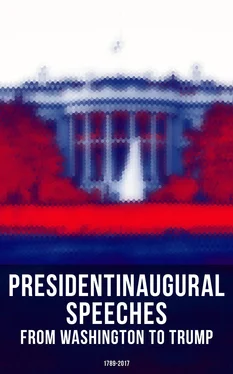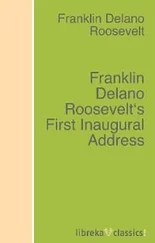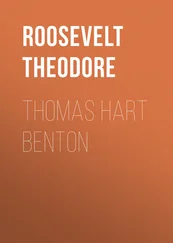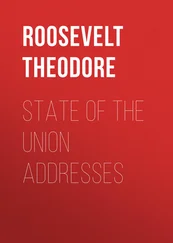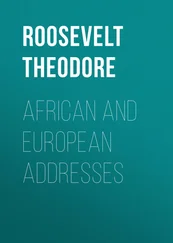I repair, then, fellow-citizens, to the post you have assigned me. With experience enough in subordinate offices to have seen the difficulties of this the greatest of all, I have learnt to expect that it will rarely fall to the lot of imperfect man to retire from this station with the reputation and the favor which bring him into it. Without pretensions to that high confidence you reposed in our first and greatest revolutionary character, whose preeminent services had entitled him to the first place in his country's love and destined for him the fairest page in the volume of faithful history, I ask so much confidence only as may give firmness and effect to the legal administration of your affairs. I shall often go wrong through defect of judgment. When right, I shall often be thought wrong by those whose positions will not command a view of the whole ground. I ask your indulgence for my own errors, which will never be intentional, and your support against the errors of others, who may condemn what they would not if seen in all its parts. The approbation implied by your suffrage is a great consolation to me for the past, and my future solicitude will be to retain the good opinion of those who have bestowed it in advance, to conciliate that of others by doing them all the good in my power, and to be instrumental to the happiness and freedom of all.
Relying, then, on the patronage of your good will, I advance with obedience to the work, ready to retire from it whenever you become sensible how much better choice it is in your power to make. And may that Infinite Power which rules the destinies of the universe lead our councils to what is best, and give them a favorable issue for your peace and prosperity.
(March 4, 1805)
Table of Contents
Proceeding, fellow-citizens, to that qualification which the Constitution requires before my entrance on the charge again conferred on me, it is my duty to express the deep sense I entertain of this new proof of confidence from my fellow-citizens at large, and the zeal with which it inspires me so to conduct myself as may best satisfy their just expectations.
On taking this station on a former occasion I declared the principles on which I believed it my duty to administer the affairs of our Commonwealth. My conscience tells me I have on every occasion acted up to that declaration according to its obvious import and to the understanding of every candid mind.
In the transaction of your foreign affairs we have endeavored to cultivate the friendship of all nations, and especially of those with which we have the most important relations. We have done them justice on all occasions, favored where favor was lawful, and cherished mutual interests and intercourse on fair and equal terms. We are firmly convinced, and we act on that conviction, that with nations as with individuals our interests soundly calculated will ever be found inseparable from our moral duties, and history bears witness to the fact that a just nation is trusted on its word when recourse is had to armaments and wars to bridle others.
At home, fellow-citizens, you best know whether we have done well or ill. The suppression of unnecessary offices, of useless establishments and expenses, enabled us to discontinue our internal taxes. These, covering our land with officers and opening our doors to their intrusions, had already begun that process of domiciliary vexation which once entered is scarcely to be restrained from reaching successively every article of property and produce. If among these taxes some minor ones fell which had not been inconvenient, it was because their amount would not have paid the officers who collected them, and because, if they had any merit, the State authorities might adopt them instead of others less approved.
The remaining revenue on the consumption of foreign articles is paid chiefly by those who can afford to add foreign luxuries to domestic comforts, being collected on our seaboard and frontiers only, and incorporated with the transactions of our mercantile citizens, it may be the pleasure and the pride of an American to ask, What farmer, what mechanic, what laborer ever sees a taxgatherer of the United States? These contributions enable us to support the current expenses of the Government, to fulfill contracts with foreign nations, to extinguish the native right of soil within our limits, to extend those limits, and to apply such a surplus to our public debts as places at a short day their final redemption, and that redemption once effected the revenue thereby liberated may, by a just repartition of it among the States and a corresponding amendment of the Constitution, be applied in time of peace to rivers, canals, roads, arts, manufactures, education, and other great objects within each State. In time of war, if injustice by ourselves or others must sometimes produce war, increased as the same revenue will be by increased population and consumption, and aided by other resources reserved for that crisis, it may meet within the year all the expenses of the year without encroaching on the rights of future generations by burthening them with the debts of the past. War will then be but a suspension of useful works, and a return to a state of peace, a return to the progress of improvement.
I have said, fellow-citizens, that the income reserved had enabled us to extend our limits, but that extension may possibly pay for itself before we are called on, and in the meantime may keep down the accruing interest; in all events, it will replace the advances we shall have made. I know that the acquisition of Louisiana had been disapproved by some from a candid apprehension that the enlargement of our territory would endanger its union. But who can limit the extent to which the federative principle may operate effectively? The larger our association the less will it be shaken by local passions; and in any view is it not better that the opposite bank of the Mississippi should be settled by our own brethren and children than by strangers of another family? With which should we be most likely to live in harmony and friendly intercourse?
In matters of religion I have considered that its free exercise is placed by the Constitution independent of the powers of the General Government. I have therefore undertaken on no occasion to prescribe the religious exercises suited to it, but have left them, as the Constitution found them, under the direction and discipline of the church or state authorities acknowledged by the several religious societies.
The aboriginal inhabitants of these countries I have regarded with the commiseration their history inspires. Endowed with the faculties and the rights of men, breathing an ardent love of liberty and independence, and occupying a country which left them no desire but to be undisturbed, the stream of overflowing population from other regions directed itself on these shores; without power to divert or habits to contend against it, they have been overwhelmed by the current or driven before it; now reduced within limits too narrow for the hunter's state, humanity enjoins us to teach them agriculture and the domestic arts; to encourage them to that industry which alone can enable them to maintain their place in existence and to prepare them in time for that state of society which to bodily comforts adds the improvement of the mind and morals. We have therefore liberally furnished them with the implements of husbandry and household use; we have placed among them instructors in the arts of first necessity, and they are covered with the aegis of the law against aggressors from among ourselves.
But the endeavors to enlighten them on the fate which awaits their present course of life, to induce them to exercise their reason, follow its dictates, and change their pursuits with the change of circumstances have powerful obstacles to encounter; they are combated by the habits of their bodies, prejudices of their minds, ignorance, pride, and the influence of interested and crafty individuals among them who feel themselves something in the present order of things and fear to become nothing in any other. These persons inculcate a sanctimonious reverence for the customs of their ancestors; that whatsoever they did must be done through all time; that reason is a false guide, and to advance under its counsel in their physical, moral, or political condition is perilous innovation; that their duty is to remain as their Creator made them, ignorance being safety and knowledge full of danger; in short, my friends, among them also is seen the action and counteraction of good sense and of bigotry; they too have their antiphilosophists who find an interest in keeping things in their present state, who dread reformation, and exert all their faculties to maintain the ascendancy of habit over the duty of improving our reason and obeying its mandates.
Читать дальше
